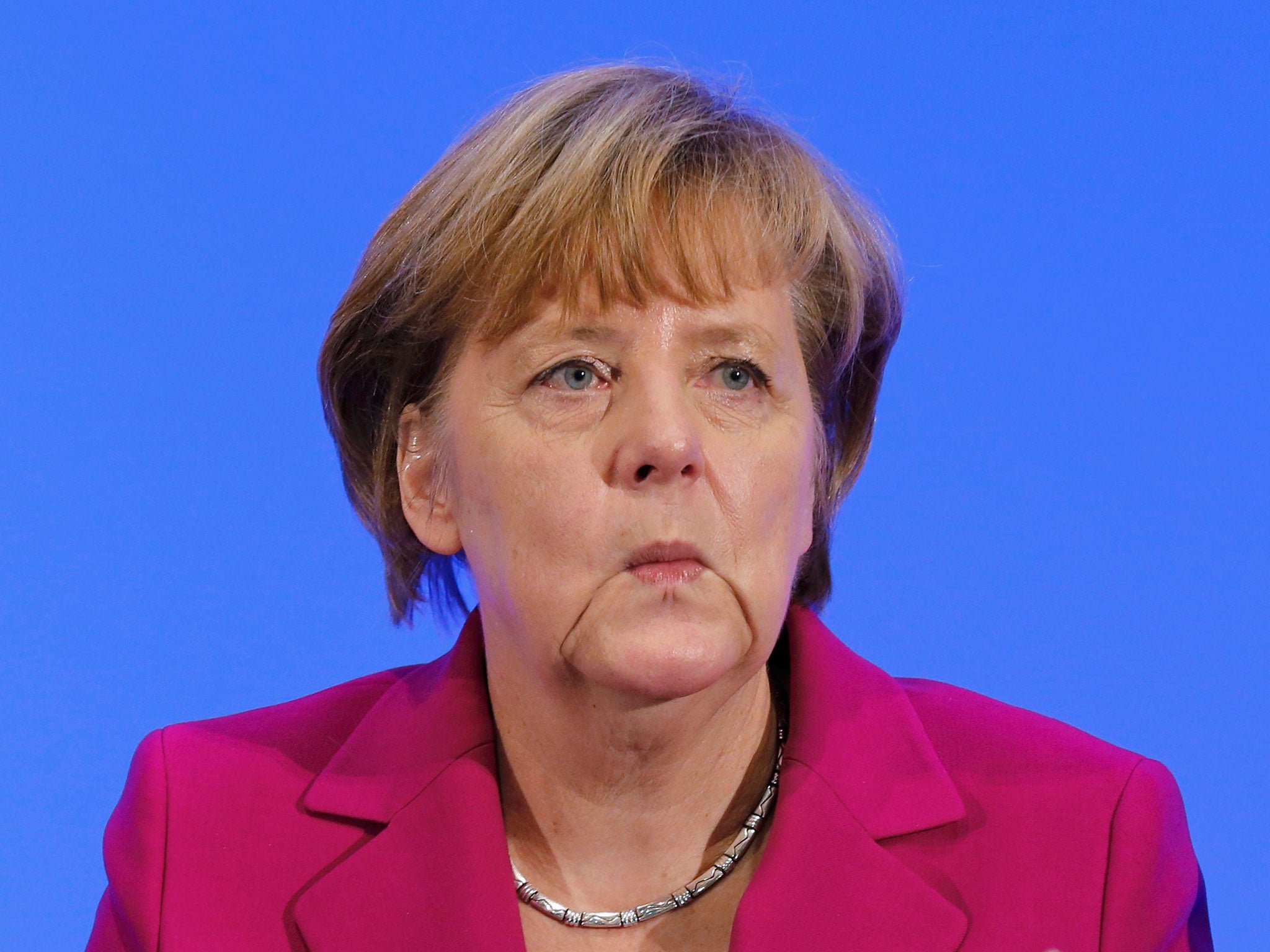With her eye on allies and party, Angela Merkel talks tough on foreign policy - tackling Russia, Italy and France
Chancellor’s remarks on Russia and EU may be primarily for domestic consumption

With her 10th year in office fast approaching, domestic opponents to convince, and her own Christian Democrats party to reassure, Angela Merkel has stepped up her criticism of Russia’s policies in Eastern Europe and attacked Italy and France for alleged budgetary sloppiness.
Ms Merkel’s broadside against President Vladmir Putin and her European Union allies was delivered on the eve of Tuesday’s annual conservative (CDU) conference. In her outspoken interview with Die Welt am Sonntag newspaper, Ms Merkel reiterated her view that Russia’s “violation” of Ukraine’s territorial integrity “must not be allowed to stand”. But she also accused the Kremlin of deliberately creating problems for Moldova, Georgia and Ukraine, which are seeking closer ties with the EU.
“Three of our eastern neighbours have each taken a sovereign decision to sign an association agreement with the EU. Russia is creating difficulties for them,” she added, citing frozen conflicts in breakaway regions such as Trans-Dniester, Abkhazia and South Ossetia.
Ms Merkel’s comments about Russia echoed the hard-line approach she adopted during the G20 summit last month where she altered her previously cautious stance and castigated the Kremlin for its annexation of Crimea. Her remarks were also aimed at prominent members of her Social Democrat (SPD) party coalition partners: among others, the former German SPD Chancellors Gerhard Schröder and Helmut Schmidt have argued in favour of a more conciliatory attitude to Moscow.
Frank-Walter Steinmeier, Ms Merkel’s Social Democrat Foreign Minister, was recently accused by one of Ms Merkel allies in Bavaria of pursuing a different policy towards Russia to Ms Merkel’s. Mr Steinmeier’s office was forced to deny the accusation.
However, Russia was not the only butt of her criticism. In an unusually outspoken attack of two of Berlin’s closest European allies, Ms Merkel also criticised Italy and France for allegedly failing to bring their budgets into line with EU rules.
The European Commission will decide in March whether the two countries’ budgets are within EU deficit and debt limits. The Commission has warned it could fine France for falling short of its deficit-cutting obligations and discipline Italy for its debt levels.
“The Commission has made it clear that what has been put on the table so far is insufficient,” Ms Merkel told her interviewer. France and Italy were nonplussed by the Berlin’s rhetorical muscle-flexing – even if it was uttered by a German Chancellor who has been called “Europe’s most powerful woman leader”.
“We are making reforms in France not to please one European leader or another but because they are necessary for France,” said the French Finance Minister Michel Sapin.
An Italian official reacted strongly to the comments, saying it was “regrettable” that Ms Merkel viewed the reforms introduced by the Italian Prime Minister Matteo Renzi as lacking. “The Italian government has never permitted itself to hand out marks to a European Union member country and we ask Germany for the same respect,” Sandro Gozi, Italian Undersecretary for EU affairs, said in a statement.
“Maybe Chancellor Merkel should focus on Germany’s domestic demand, on its lack of investments, or on its balance-of-payments imbalances. It would be an important contribution that Europe has been waiting on Berlin to make for a long time.”
Join our commenting forum
Join thought-provoking conversations, follow other Independent readers and see their replies
Comments